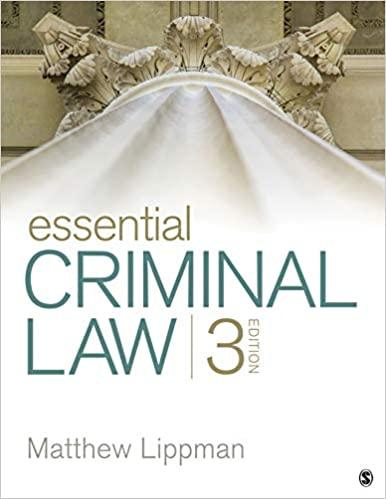Question
Allen is a professional portrait painter. Customers hire Allen to specially paint personal portraits of themselves for a significant fee. For purposes of this question,
Allen is a professional portrait painter. Customers hire Allen to specially paint personal portraits of themselves for a significant fee. For purposes of this question, you can assume that Allen is a merchant and that the portraits he paints are considered "goods" for the purpose of applying the Uniform Commercial Code. Bobbie hires Allen to paint a portrait of her so that she could have a custom made portrait to hang in her living room. No one except Bobbie would want or have any use for this personal portrait of Bobbie. Allen agrees to paint the portrait so Bobbie and Allen enter into an oral contract in which they agree that Allen will paint a custom made portrait of Bobbie and in exchange Bobbie agrees to pay Allen $2,000 for the portrait when he is done. Allen purchases all of the materials and begins painting the portrait. Allen is almost done with the portrait when he receives a call from Bobbie saying she no longer wants the painting and will not pay Allen the $2,000 she agreed to pay under their oral contract. Bobbie tells Allen that the UCC statute of frauds applies so their oral contract is unenforceable because it is supposed to be in writing. If Allen sues Bobbie to enforce the contract, will Allen succeed?
Step by Step Solution
There are 3 Steps involved in it
Step: 1

Get Instant Access to Expert-Tailored Solutions
See step-by-step solutions with expert insights and AI powered tools for academic success
Step: 2

Step: 3

Ace Your Homework with AI
Get the answers you need in no time with our AI-driven, step-by-step assistance
Get Started


